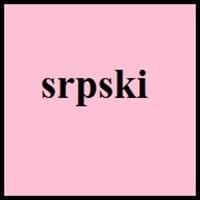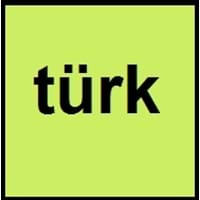Countries
Bosnia and Herzegovina, Kosovo, Serbia, Slovakia
Azerbaijan, Bosnia, Bulgaria, Cyprus, Greece, Iraq, Kosovo, Macedonia, Northern Cyprus, Romania, Turkey
National Language
Bosnia, Croatia, Montenegro, Serbia
Turkey
Second Language
Not spoken in any of the countries
Not spoken in any of the countries
Speaking Continents
Europe
Asia, Europe
Minority Language
Croatia, Czech Republic, Hungary, Macedonia, Montenegro, Romania, Slovakia
Bosnia and Herzegovina, Greece, Iraq, Kosovo, Macedonia, Romania
Regulated By
Board for Standardization of the Serbian Language
Turkish Language Association
Interesting Facts
- Serbian language was derived from the Old Church Salvic, as the language was commonly spoken by most of Slavic people in the 9th Century.
- Serbian language is based on Stokavian dialect.
- Turkish language oldest written records are found upon stone monuments in Central Asia, in Orhun, Yenisey and Talas regions.
- Turkish language was developed in the Middle East, streching all the way to Eastern Europe.
Similar To
Bosnian and Croatian Languages
Azerbaijani Language
Derived From
Not Available
Not Available
Alphabets in
Serbian-Alphabets.jpg#200
Turkish-Alphabets.jpg#200
Scripts
Cyrillic, Latin
Latin
Writing Direction
Left-To-Right, Horizontal
Left-To-Right, Horizontal
Hello
Здраво (Zdravo)
Merhaba
Thank You
Хвала лепо (Hvala lepo)
teşekkür ederim
How Are You?
Како си? (Kako si?)
Nasılsın?
Good Night
Лаку ноћ (Laku noć)
İyi Geceler
Good Evening
Добро вече (Dobro veče)
İyi Akşamlar
Good Afternoon
Добар дан (Dobar dan)
Tünaydın
Good Morning
Добро јутро (Dobro jutro)
günaydın
Please
Молим (Molim)
lütfen
Sorry
Жао ми је (Žao mi je)
üzgünüm
Bye
Довиђења (Doviđenja)
Hoşçakal
I Love You
Волим те (Volim te)
Seni seviyorum
Excuse Me
Извините (Izvinite)
Afedersiniz
Dialect 1
Prizren-Timok
Azerbaijani Turkish
Where They Speak
Southeastern Serbia
Azerbaijan, Georgia, Iran, Iraq, Russia, Syria, Turkey
How Many People Speak
Not Available
Dialect 2
Smederevo–Vršac
Crimean Turkish
Where They Speak
Serbia
Bulgaria, Kyrgyzstan, Romania, Russia, Turkey, Ukraine, Uzbekistan
How Many People Speak
Not Available
Dialect 3
Torlakian
Gagauz
Where They Speak
Bulgaria, France, Kosovo, Macedonia, Romania, Serbia
Moldova, Russia, Turkey, Ukraine
Speaking Population
Not Available
Second Language Speakers
Not Available
Native Name
српски (srpski) српски језик (srpski jezik)
Türkçe
Alternative Names
Montenegrin
Anatolian, Türkisch
German Name
Serbisch
Türkisch
Pronunciation
[sr̩̂pskiː]
[ˈtyɾct͡ʃɛ]
Origin
11th Century
c. 1350
Language Family
Indo-European Family
Turkic Family
Subgroup
Not Available
Turkic
Branch
Not Available
Southwestern(Oghuz)
Early Forms
No early forms
Old Anatalian Turkish, Ottoman Turkish and Turkish
Standard Forms
Standard Serbian
Ottoman Turkish(defunct)
Signed Forms
Not Available
Turkish Sign Language
Scope
Individual
Individual
ISO 639 6
Not Available
Not Available
Glottocode
serb1264
nucl1301
Linguasphere
53-AAA-g
44-AAB-a
Language Type
Living
Living
Language Linguistic Typology
Subject-Verb-Object
Subject-Object-Verb
Language Morphological Typology
Not Available
Synthetic
Serbian and Turkish Greetings
People around the world use different languages to interact with each other. Even if we cannot communicate fluently in any language, it will always be beneficial to know about some of the common greetings or phrases from that language. This is where Serbian and Turkish greetings helps you to understand basic phrases in Serbian and Turkish language. Serbian word for "Hello" is Здраво (Zdravo) or Turkish word for "Thank You" is teşekkür ederim. Find more of such common Serbian Greetings and Turkish Greetings. These greetings will help you to be more confident when conversing with natives that speak these languages.
Serbian vs Turkish Difficulty
The Serbian vs Turkish difficulty level basically depends on the number of Serbian Alphabets and Turkish Alphabets. Also the number of vowels and consonants in the language plays an important role in deciding the difficulty level of that language. The important points to be considered when we compare Serbian and Turkish are the origin, speaking countries, language family, different greetings, speaking population of these languages. Want to know in Serbian and Turkish, which language is harder to learn? Time required to learn Serbian is 44 weeks while to learn Turkish time required is 44 weeks.





